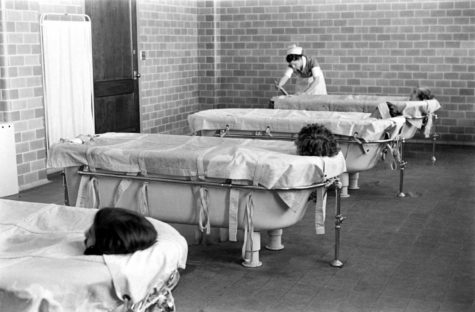Opinion: The Student Mental Health Crisis
Around the globe, students’ mental health is at an all-time low. Between Covid-19 and an increase in workload, the amount of pressure that students are facing is now bordering on the unbearable.
December 8, 2021
Around the globe, students’ mental health is at an all-time low. Between Covid-19 and an increase in workload, the amount of pressure that students are facing is now bordering on the unbearable.
Suicide, anxiety, and depression rates have skyrocketed, leaving us to wonder: Why has our society collectively decided that student mental health doesn’t matter, and what can we do to help?
It’s not a new idea that society tends to ignore mental health issues. In the 1940’s, those with mental health issues were often shunned, taunted, and thrown into mental institutions; these people were accused of being either sensitive or over-dramatic.
It wasn’t until the 1960’s that anxiety became worthy of psychiatric attention. However, there was still much stigma surrounding the treatment of mental health. The issues being addressed were few and far between, with the premier disorder worthy of study being anxiety, only one of over two-hundred mental health disorders in existence.
Mental health has always been a serious issue. With this fact stated, what should we then do about it? The first thing we must do is eliminate the stigma; even after 60-some-odd years, there is still much shame surrounding the issue of mental health.

Taking time off from school or work, or even sleeping in, are both considered lazy; seeking therapy is considered desperate; and simply taking a ten-minute break from your work is considered cavalier behavior. This ridiculous tradition has resulted in the burn-out of an entire generation.
As well, outreach and treatment for students’ mental health needs to be more readily available. Unlike physical health doctors, it is extremely rare that therapists, psychiatrists, or psychologists are covered entirely under insurance. Society insists that mental and physical health is separate; however, this is wholly untrue. Mental and physical health go hand-in-hand, and it is high time we realize this.
With all this in mind, how can we now help students mitigate all these issues regarding mental health? First of all, the amount of homework young people receive is absurd. Studies show that the time students spend doing homework has increased since 1997 by more than two hours. Students spend roughly 105,120 waking hours in school; if we can’t be taught everything in this time frame, something is wrong.
On top of that, most American schools start at roughly 7:45am. However, both the American Academy of Sleep Medicine and the American Academy of Pediatrics say that middle and high schools should begin no earlier than 8:30am.
As well, the amount of pressure put on students is impacting their mental health greatly. Kids as young as the elementary school age are expected to do hours of homework, participate in school clubs and sports, keep up their grades, and have an active social life — all before they’ve even hit puberty.
In other words, we are stunting children’s growth before they have even started growing.
To this, the studies agree. The American Journal of Family Therapy found that students as early as elementary school are getting significantly more homework than is recommended by experts in education.
Even after all this, society still largely ignores students with mental health issues. Schools are forcing students to do debilitating amounts of work to the point of stunted emotional growth. We need to do something before it’s too late.
Students are the future of the world. If we don’t do something about the student mental health crisis, there will be no future.


